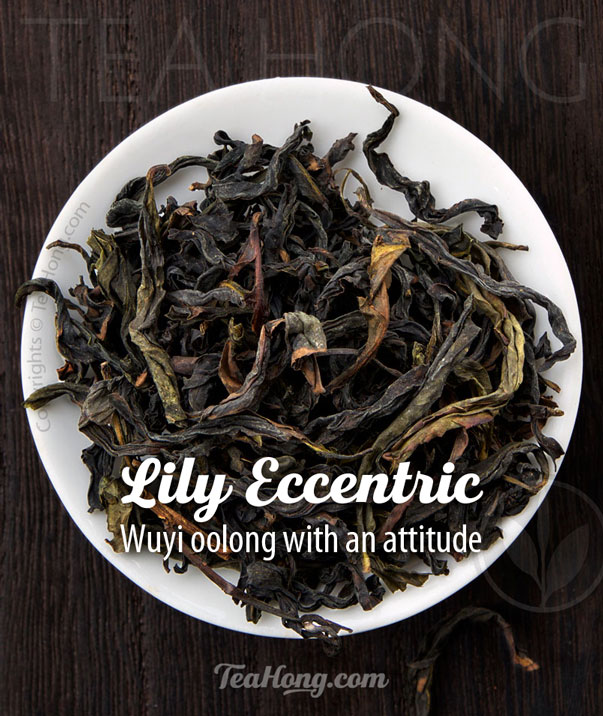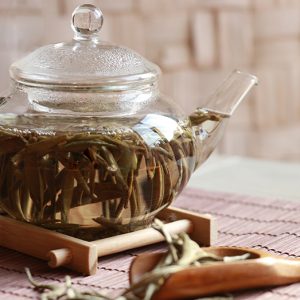Home › Dialogues › Health Matters › "Drying" effects of certain teas?
Tagged: diuretic, drying-effect, humid-evil, tcm, tcm-character
- This topic has 11 replies, 6 voices, and was last updated 10 years, 10 months ago by
Betty.
-
AuthorPosts
-
-
2012.04.27 at 4:01 am #8466
pancakes
ParticipantIt seems like there are some teas that are more “drying” than others. For example, although baked green teas are not supposed to be particularly warming, I find them to be somewhat neutral, and they also seem to be a bit drying in nature. In contrast, I feel more like there is more humid qi when I drink a Tieguanyin.
How can we understand this type of phenomenon in terms of TCM? And is there some relationship between warming / cooling and dampness / drying? I presumed that warming teas would naturally be drying, while cooler teas would naturally be bad for internal dampness. However, in my experiences so far, it seems that this is not the case?
-
2012.04.28 at 1:11 am #9451
CHAWANG
Participantgreen tea drying effect not only related to tea, more to how strong you prepare. very strong green tea becomes drying: more piss. less strong green tea quenching: not thirsty. cold green tea: humid evil.
tie guan yin green style humid evil and cold. not good for too much. very very green ones and light fire very fragrant but not too good for health -
2012.04.28 at 4:55 pm #9453
Leo
ParticipantWhether a tea is “drying”, if I understand what you mean, how the whole body feel after the consumption, is dependent not only on whether the tea is high-short fire or low-slow fire, but also on the amount of caffeine, and the strength of the infusion. If you have the need for reducing the strength of this “drying” effect, brew your tea at a lower strength. Or switching to a tea with lower caffeine content and that can be infused in a shorter duration while still good taste.
Most normal baked style green tea is cool to cool-neutral in TCM nature, while a green style tieguanyin can be cold in TCM nature. I consider it “cold-dampness” evil rather than damp qi. Some green looking ones are fired extremely lowly and slowly so they are not so much that, but those that are really fresh and fragrant, and fired just lowly and shortly, are very much in that description.TCM warm ones may be dampness causing too and cooler teas can be great for dissipating dampness. The warm-cool nature is not related to the damp-“drying” nature.You should be very proud having been able to arrive at such observation by yourself. -
2012.05.01 at 1:08 am #9454
tea soul
ParticipantCaffeine is the major diuretic cause in green tea. Fresher and finer green tea typically has more caffeine gram to gram than coffee beans, but mostly people put 1 g of tealeaves to 100 ml water, but 5 to 10 g coffee for the same, and coffee is ground for more thorough infusion of its substances into water and tea is not. As a result, caffeine in coffee is generally higher in practice and therefore coffee drinking more drying. However, when green tea is made strong, the caffeine content can be high. Repeated drinking of strong green tea would lead to this drying effect.
-
2012.05.06 at 4:42 am #9462
pancakes
ParticipantAh, thank you all for your input. This has given me quite a bit of food for thought, and it is interesting to learn that even within a particular style, the firing and strength of the tea can really make a big difference. I actually like the drying effect a lot, and it seems like it is beneficial for me. To me, the worst effect is a feeling of internal dampness, which probably corresponds to stagnant qi.
In some ways, I have heard similar findings from others about the way tea makes them feel. Often westerners who do not have familiarity with TCM or concepts of qi will still talk about how green tea makes them feel good, and how the actual feeling they get from drinking it is different and special. I have heard this quite a few times from young people in the U.S.
-
2012.05.15 at 1:19 am #9470
Betty
ParticipantI feel that my lips and tongue feel very dry, sometimes even burning, after coffee, but not tea, even a lot of green tea. However, I think I am retaining too much water in my system. How does that explain?
-
2012.05.19 at 5:07 pm #9476
Leo
ParticipantCaffeine is diuretic, so it encourages excretion of water through the bladder. However, that is only one side of the picture.
Green tea may encourages urine, but it is not loaded burnt carbon like coffee is, so it is not TCM hot. Coffee is TCM hot so it encourages the fire energy while lowering your yin energy. You feel hot at the lis and tongues, sometimes maybe the eyes too, feel energetic sometimes, but down very easily.Although most teas are diuretic, but not as many can help to dissipate humid toxins. To facilitate the body to dissipate humid toxins in a person who has been affected through exposure to TCM hot intakes, such as coffee, it’ll require some substances that helps the cells to expel water and/or unwanted lipids mistaken trapped in or near themselves. Only Phoenix oolongs or Wuyi dried with low fire (but really completely dried) can do the job. -
2012.05.19 at 5:19 pm #9478
tea soul
ParticipantAgree. Fresher ones are better, but not maocha.
-
2012.05.22 at 7:38 pm #9482
Leo
ParticipantYep
-
2012.06.08 at 1:39 pm #9498
Betty
ParticipantSo I should be switching to Phoenix oolongs. I don’t think I can get this here. Can anyone suggest a good internet shop?
-
2013.06.16 at 9:13 pm #8680
daihoh
ParticipantAccording to TCM theory, green tea can cause dampness (fluid/mucus retention) because it is astringent. For example, it is used in the classic formula “chuan xiong cha tiao wan” (for wind invasion causing headache) to balance out the acrid, dispersing nature of the formula’s key medicinals, so that it doesn’t overly promote sweating (which would lead to loss of qi and fluids). Because it is astringent, green tea can stagnate the flow of fluids in a person who suffers from dampness, and make the dampness worse. additionally, even though green tea will also dry dampness by promoting urination, it can be overly drying and make dampness worse. ironically, this drying quality, which stagnates the movement of fluids in the body, will create dampnes. oolongs and pu-errhs, because they are neither hot, cold, or astringent, are best for damp/water accumulation.
-
2013.06.21 at 9:29 am #8667
Leo
Participant@daihoh, I am glad that you have a basic concept and accept the idea that different teas have different TCM properties.
The TCM idea of dampness goes way beyond the modern understanding of the word as relating to water. A lot of times in the modern city life style when people have too much nutrition, too much sugar, cold drinks and a lot of sitting down, dampness is often related to nutrient wastes deposited anywhere in our lymphatic or circulatory system. Theanine, a unique substance in tea, helps the system get rid of those. The waste would ultimately be dispelled through urination, but that’s a lot more complex than just diuretic. This is one topic that I promise myself to write before the next Spring harvest. I hope you’ll enjoy reading it.There is another key issue to clarify: astringency in tea happens not as much in green tea than in black (red) teas, newer puers, and some oolongs. A green tea can be bitter. Would you like to write here the general TCM properties of things that are bitter?I’ll again follow up on that after you have written it.
-
-
AuthorPosts
- You must be logged in to reply to this topic.










